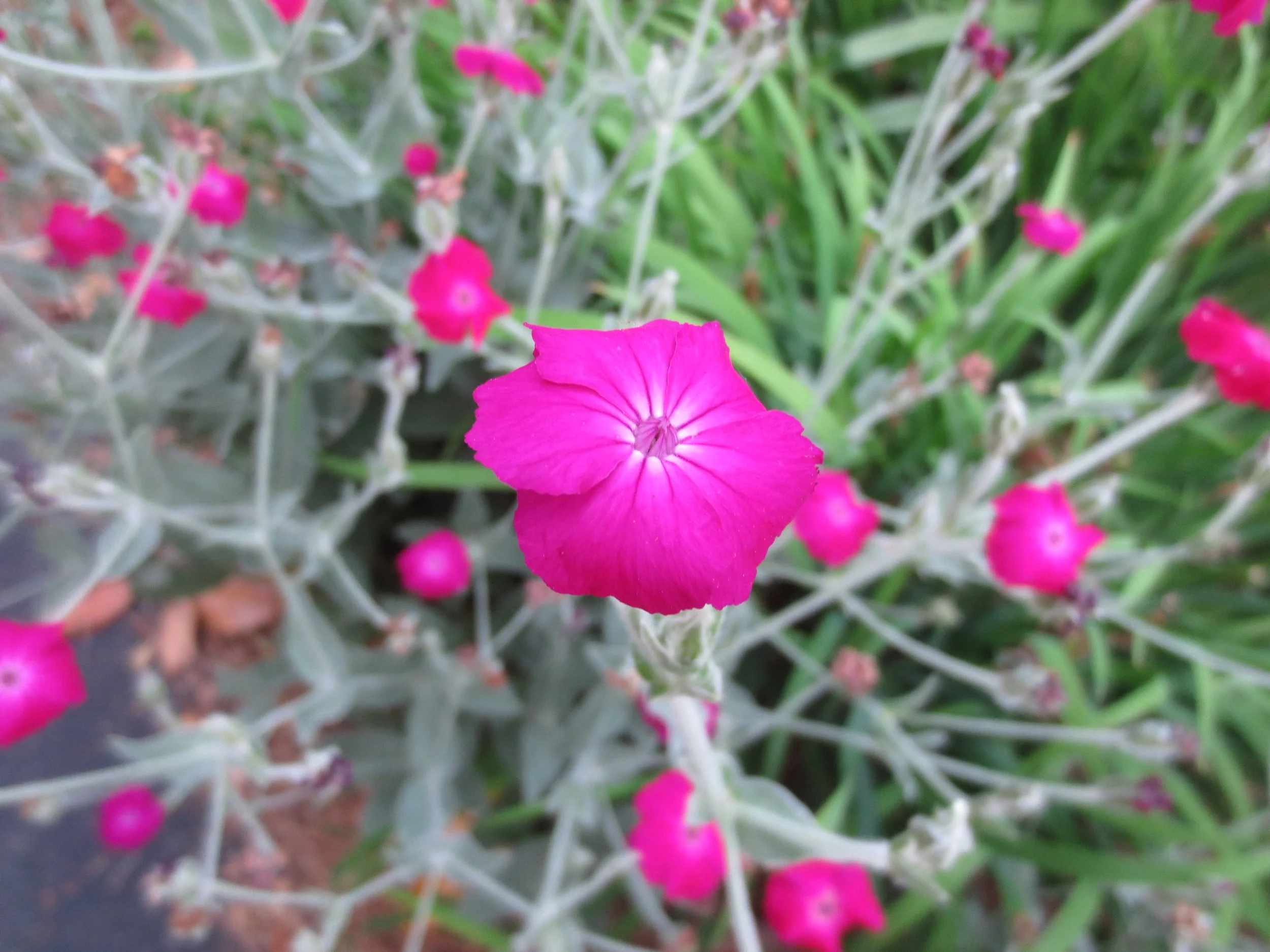I try to stay informed on current gardening trends, so when I heard the new-to-me term “chaos gardening” I went into sleuth mode. Chaos gardening has recently gone viral on TikTok. One site describes it thus: “… letting go of the strict rules that come along with gardening and letting mother nature do the work instead” and “a haphazard and laid-back approach to gardening in which rules and meticulous garden planning are thrown out the window.”
Condensed version: Gather seeds packets, mix them together, and throw them on prepared (tilled, and raked if that is your choice) soil without a plan. Just writing that last sentence made me uncomfortable. I like plants to be arranged in groups of threes or fives, growing into each other in a lush tapestry that is casual but meticulously planned. A random jumble might sound romantic and low maintenance, but tall plants will shade out the shorter ones. Aggressive plants will overtake their delicate neighbors. Weeding will be difficult in the garden’s early stages, because desired plants cannot be distinguished from the undesirables. Seeds vary in their proper planting depths, so some may perish if they are sown too deep or too shallowly. And some seeds need light to germinate, while others need darkness. The advocates of chaos gardening always say, “some seeds won’t come up, and that’s okay.” Maybe for others, but not for me.
I start scrutinizing seed catalogs in late winter, planning new color schemes and flower bed expansions. I allow my imagination to run wild but I reel it in before ordering. By mid-spring, my catalogs are dog-eared and well worn from being thumbed through frequently. Some folks have elegant coffee-table books. My version is the current Baker Creek’s The Whole Seed Catalog, 532 colored pages of luscious heirlooms and recipes that makes me consider turning one of our pastures into a food plot. Then the temporary insanity fades and I return to a more restrained approach. My seed choices are intentional, purposeful, and not part of a random mix.
Chaos gardening is not the same as guerilla gardening, where one spreads seeds onto property they don’t own, like vacant lots or public areas. The intent is to beautify waste places or provide pollinator habitat. Don’t mistake chaos gardening for cottage gardening, either. Cottage gardens may be an informal mixture of annuals, perennials, grasses, herbs, and edibles but they are carefully planned, not random.
If the idea of chaos gardening appeals to you, start with a small area first and select seeds that germinate easily, have similar light requirements, and are not overly aggressive in their growth habits: cosmos, zinnias, marigolds, echinacea, celosia are good for sunny areas. Keep notes of what you sow so that you have an idea of what is emerging. Send me photos of your successes!

